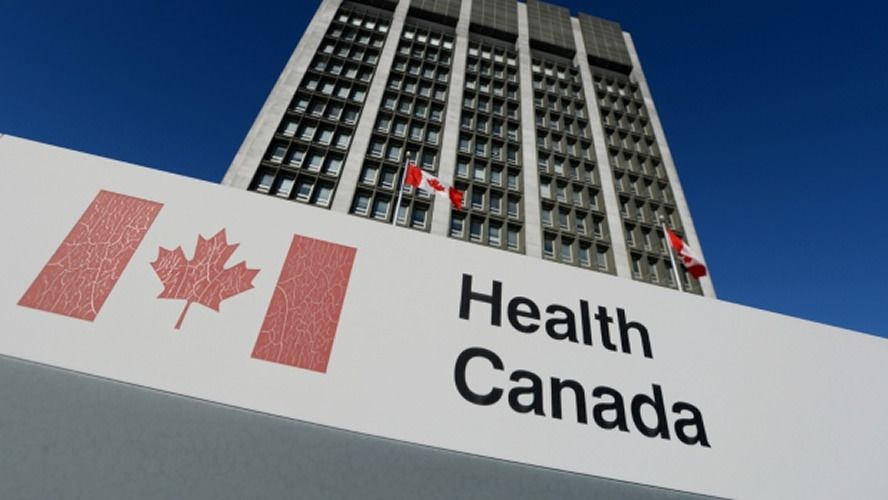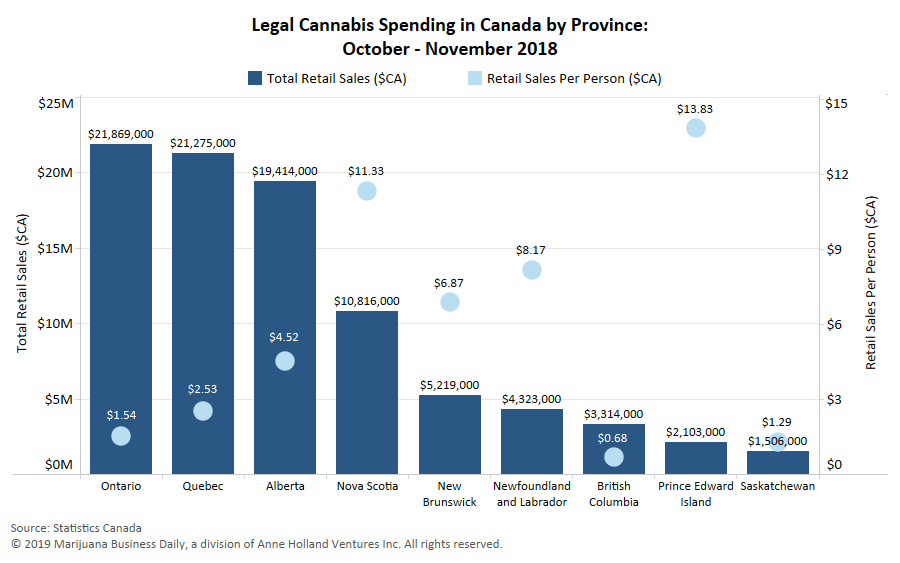More companies than ever are lining up to be licensed cannabis cultivators in Canada despite an increasingly competitive market outlook, according to new data from the country’s regulatory body for cannabis producers.
As of Dec. 31, 2018, almost 840 site applications were in the licensing pipeline, Health Canada told Marijuana Business Daily.
That’s a 30% increase from August, when 588 applicants were in the queue.
Currently, 145 authorized cultivators, processors and sellers are licensed under the Cannabis Act.
Beacon Securities analyst Russell Stanley estimates the Canadian market alone can’t support all the prospective cultivators in the pipeline.
“There has to be a reckoning. It’s a when and not an if.”
Analysts expect the shortage of licensed product throughout the country to turn to oversupply in two to five years.
That means new entrants into the market – and even most current cultivators – will need a strategy beyond cultivation.
In a recent report for institutional investors, CIBC World Markets predicted that only a handful of players will come to dominate the global cannabis market, and very few companies will live up to expectations.
The report estimates cannabis sales in 2020 will be approximately 4 billion Canadian dollars ($3 billion) with cumulative earnings before interest, tax, depreciation and amortization (EBITDA) of roughly CA$1.2 billion.
Hurdles, differentiation
Experts say differentiation will be a necessity for new entrants, who will face fierce competition and tight margins from current producers ramping up cultivation, new micro-cultivators coming online later this year and licensed outdoor production entering the market for the first time.
New cultivators can expect to hit barriers faster than licensed cultivators in years past, according to Khurram Malik, a partner with Toronto-based financial advisory firm Jacob Capital Management.
One of those hurdles will be capital.
Even though marijuana firms in Canada raised a record CA$11.96 billion last year, new companies with a focus on cultivation could face a capital crunch sooner.
“That initial money is hard to find now because people are not investing in grow ops (in Canada) anymore,” Malik said.
“If I was a Canadian grow op with a Canadian strategy looking to raise money in Canada to expand, that’s going to be challenging,” he said. “Whatever internal projections you have to generate cash flow, you’re probably not going to hit them unless you’re one of the rare breed.
“It took the big guys years to figure out how to grow anything at scale and quality, and they’re still trying to figure it out to some degree.”
Malik said differentiation will be essential to survival, whether that comes down to developing unique intellectual property, brand strategy or taking a global – rather than a Canadian – outlook.
Canada’s rules on edible cannabis, infused beverages, extracts and topicals will take effect before Oct. 17, 2019, and businesses are already partnering up to capitalize.
Matt Lamers can be reached at mattl@mjbizdaily.com
To sign up for our weekly international marijuana business newsletter, click here.





